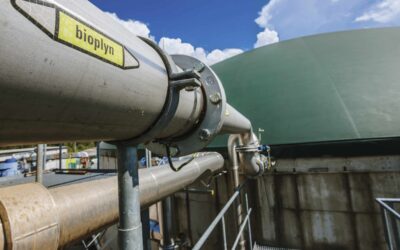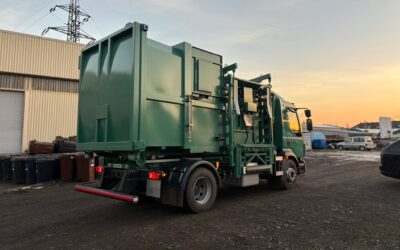After continued growth, the investment company Energy financial group (EFG) is currently focusing on achieving its targets for the period 2025-2030. In order to increase biomethane production in the Czech Republic, it plans to expand the biomethane production capacity of its facilities to 100 GWh of green gas per year as early as next year. It plans to double their capacity by 2030, also by expanding the waste collection capacity of EFG Waste Logistic, which supplies EFG’s biogas plants with biodegradable waste such as kitchen scraps from households.
“The development of biomethane as a local and sustainable substitute for natural gas plays an important role in reducing dependence on gas imports. Therefore, we intend to continue to take steps to increase the production of this green gas, energy self-sufficiency and sustainable development in our waste-utilizing energy projects in the coming years. We believe we have the potential to make a significant contribution to the national target of producing 6.6 TWh of biomethane by 2030. This corresponds to about eight percent of current natural gas consumption,” said Tomas Voltr, CEO of EFG.
Energy financial group, which celebrated its eight-year anniversary this July, intends to continue to invest in expanding its portfolio in line with this vision. It plans to operate biogas plants with a total biomethane production capacity of 100 GWh per year by the end of 2025. The Group should thus be able to process up to 100,000 tonnes of otherwise unused, almost exclusively landfilled organic waste per year in its facilities. In 2030, the aim is to produce up to 500 GWh of biomethane from a total capacity of 380,000 tonnes of waste. This corresponds to about 10% of the national target defined on the basis of the REPowerEU plan.
“This June, we started operation of our newest biomethane plant in Vyškov, which we invested over a quarter of a billion crowns to convert into one of the most modern biomethane plants in the Czech Republic. Further investments worth approximately CZK 130 million are now being spent on the reconstruction and renewal of the biogas plant in Vysoké Mýto and on more than doubling the production capacity in Rapotín, where we have built the first ever biogas plant in the Czech Republic supplying gas from renewable sources to the gas network,” said Pavel Bureš, Technical Director of EFG.
The Group also intends to continue power balance services (“PBS”) projects, which will contribute to the stabilization of the power transmission system. Already initiated investments in these projects are expected to total more than CZK 300 million during 2025-2030 and launching of these projects is planned for next year, when the subsidiaries in the Energy financial group’s portfolio are expected to reach 35-40 MW of flexible PBS capacity. The reason for these investments is also their proven profitability. EFG started offering flexibility services at its MOSTEK energo biomass power plant more than a year ago, with investments worth CZK 40 million.
The power balance services can also effectively complement the biogas plants in the Group’s portfolio, where the total capacity of existing cogeneration units for PBS can be used in conjunction with green gas production. “We have started work on three PBS projects at our biogas plants with a total capacity of 28 megawatts. One of them will be in Rapotín, where the total capacity of the cogeneration unit will be used in cooperation with biomethane production,” adds Tomáš Voltr.
By the end of the year,the power plants in EFG’s portfolio should be able to produce up to 65.5 GWh of electricity per year. The acquisition opportunities that the investment company is pursuing are crucial to meeting the Group’s objectives. By developing its portfolio of waste biogas plants and expanding its own waste collection subsidiary, EFG Waste Logistic, to other Czech regions, the Group has the ambition to increase its biomethane production capacity to 10% of the national target as early as 2030.

